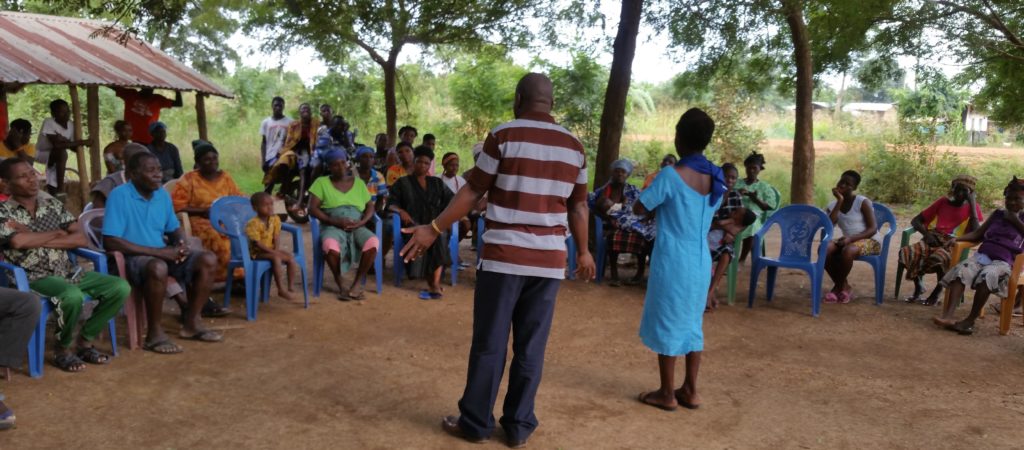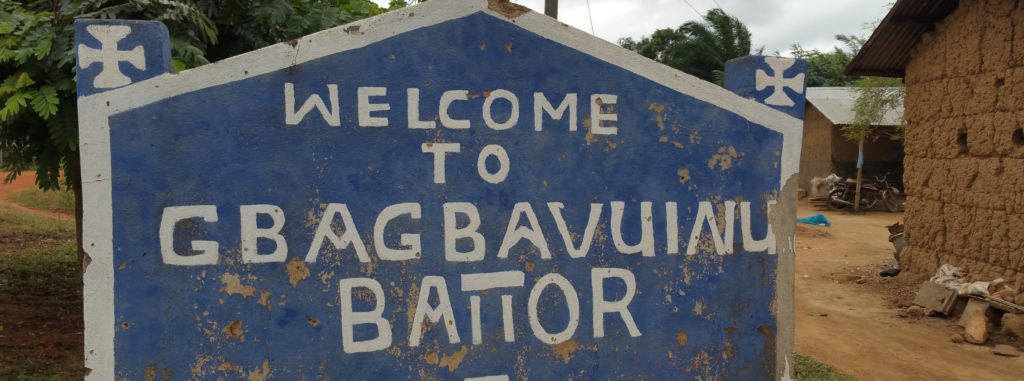
A fish farm project has turned into a nightmare for the people of Gbabgavuinu and Torgodo. Huawei Agriculture Development Center (HADC), a Chinese agriculture company registered in Asutuare in Eastern Region/Ghana, used heavy-duty equipment to build a T-shaped water wall to bank the water of a lagoon, which includes a small lake called Aklakpa. This created a fish farming pond that soon after flooded nearby farmland, destroying crops. The more it rains, the more it floods, threatening livelihoods and homes. When the community demanded compensation for what had been lost, HADC packed up and abandoned the project. Naturally, water from the lagoon drained into a stream that is an affluent of the Volta River.
On 23 July 2019, the community addressed a letter to the project manager, a Ghanaian, deploring the loss of their livelihoods and demanding compensation and immediate removal of the retention water wall with the hope that the land will go back to how it used to be. Besides the farmland’s being under water, the community complained that they have lost their sources of firewood, of traditional medicine, of fish, of construction material specific for roofing, and much more. The community also deplored that though HADC had promised them jobs, when HADC started the project it employed people from other towns.
How did Huawei Agriculture Development Center know about the Community?

The community blames its misfortune on the former District Executive Commissioner (DEC) Mr. Collins Richard Arku, who brought in the investor. Initially, when the project was explained to landowners – members of Kornorkuxor Clan – some did not think it was a good project. In fact, people alleged during the town hall meeting by Africa Faith and Justice Network (AFJN on 3st August 2022 that the DEC had coerced community members into signing, a strategy they described as “divide and conquer,” which undermined unanimous consensus as a group.
Violation of the Terms of the Lease
What is happening to the people of Gbagbavuinu is contrary to the following provisions, section 6, of the draft lease shown to AFJN by the community:
- To use the land in such generally accepted manner so that the environment shall not be degraded to such an extent as to render it impracticable for future agricultural activities.
- To pay compensation on all crops and farms destroyed as a result lessee’s operations in its catchment area.
- To repair and keep all buildings, developments and features on the land throughout the term of this lease.
- To fill all drenches [sic] dams, excavations and other voids created on the [sic] solely for their purpose before handing over the land to the lessors upon the determination of the lease.
Note: The correct sentence should have been: “To fill all trenches dams, excavations and other voids created on the land solely for their purpose before handing over the land to the lessors upon the determination of the lease.”
It is worth noting that Huawei Agriculture Development Center leased 1000 acres (416.66 Ha) for 30 years with the option to renew, paying 150.00 GHC per acre, a rate to be revised every five years. Mr. Collins Richard Arku, who brought the investors, is no longer in office. The defenseless people of Gbagbavuinu have been ignored by local authorities after the company left a serious mess, in violation of the lease agreement. Those affected by the flooding deserve compensation. Most importantly, the water retention wall needs to be opened to let water flow naturally in hopes that people can recover their farmland.
(To read the full report with analysis click here or to read the summarized version with activity pictures click here)
by Jacques Bahati, Policy Analyst and Thoughts Leader , Edited by Br. David P. Mahoney, CFX
